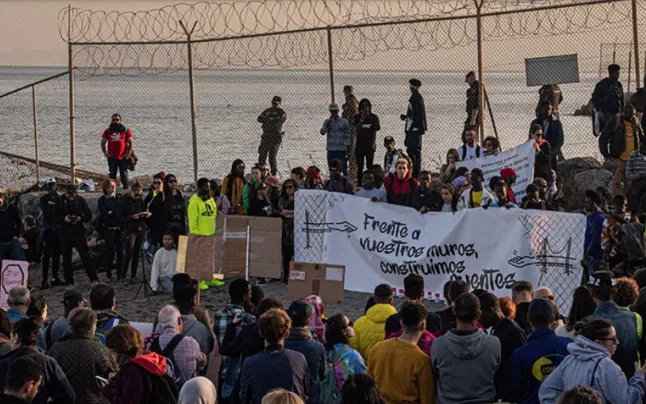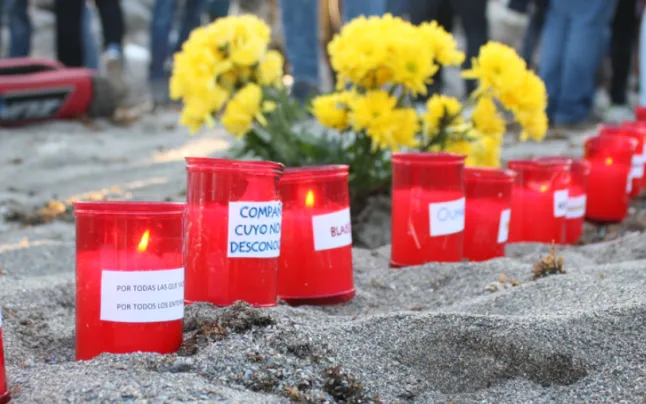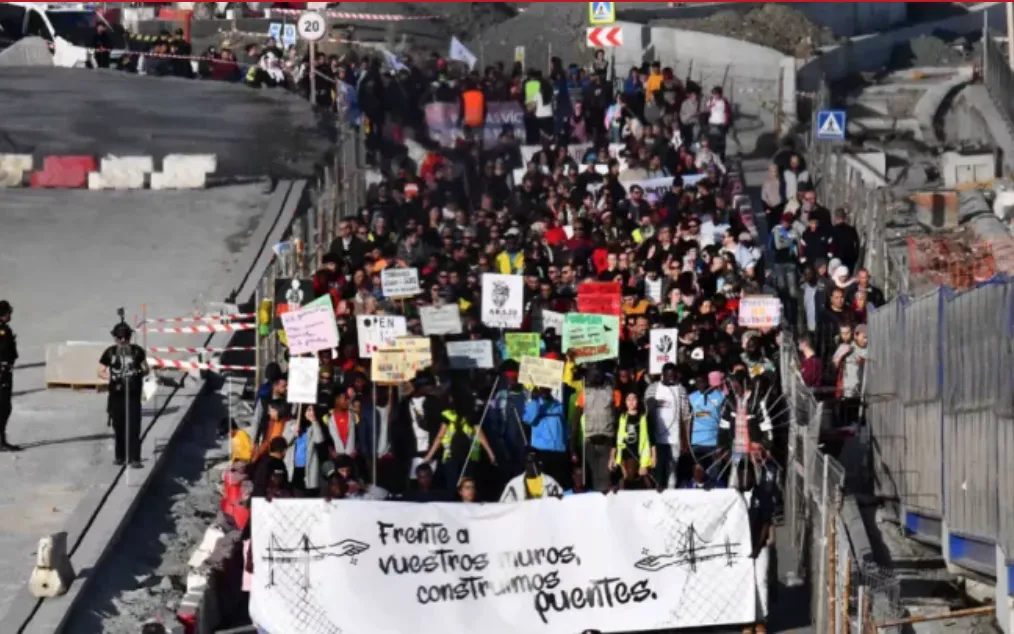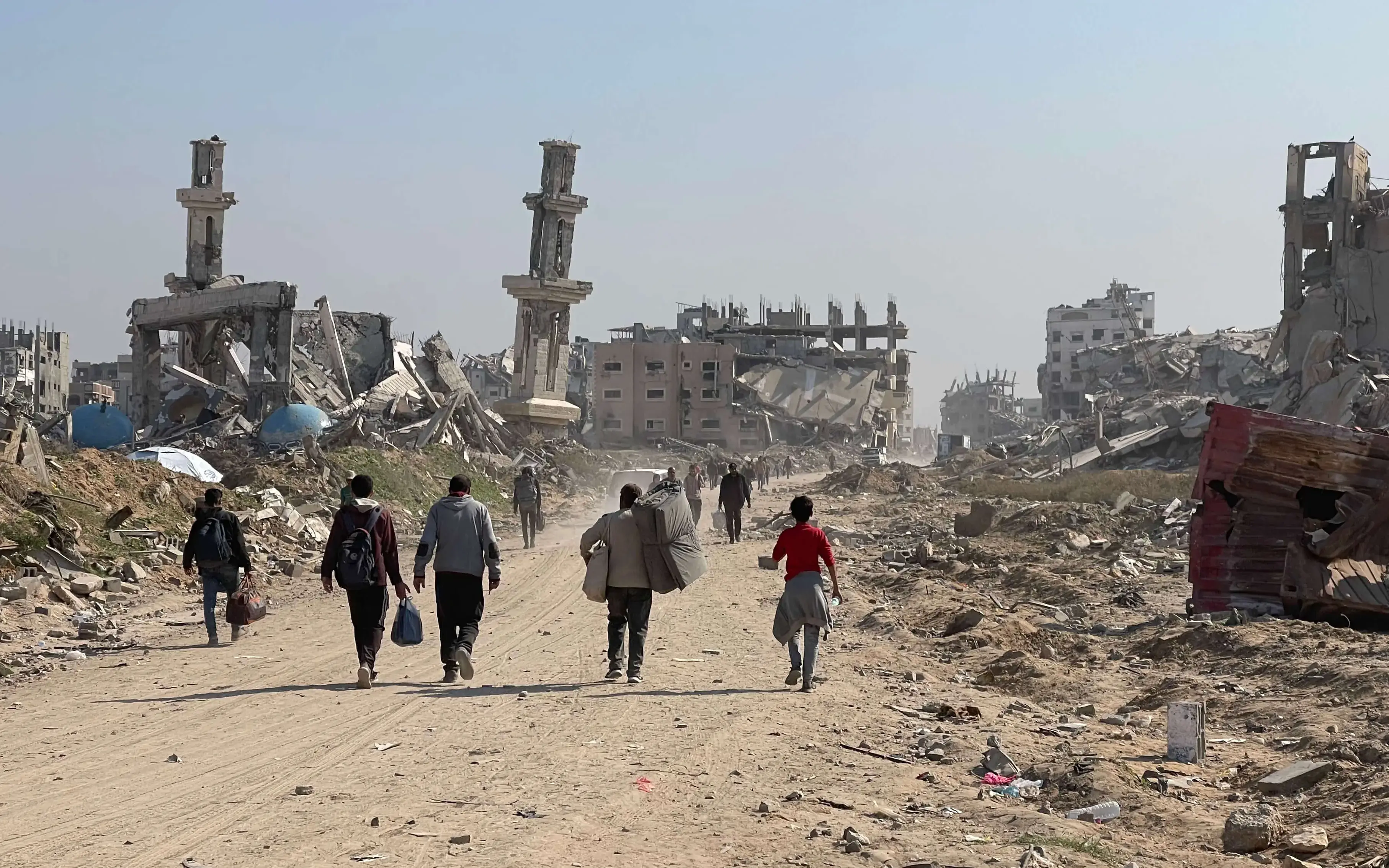The APDHA has organised an annual march since 2014 to preserve the memory of those who drowned in February of that year, and demands that the reality of borders and migration policies be made visible.
Approximately ninety people managed to reach the border area of Tarajal beach, but twenty-three of them were returned immediately to Morocco without access to a formal procedure, at least fourteen drowned, and one disappeared.
In memory of those deaths, and to demand justice and changes in current migration policies, the APDHA (Asociación Pro Derechos Humanos de Andalucía, Association for Human Rights of Andalusia) has organised, since seven years ago, the annual March for Dignity.
The eighth March for Dignity, adapted to Covid-19
Every year since 2014 the march follows a different route, but the final destination is always the beach of Ceuta. This year, due to Covid-19, the association has adapted these activities in order to be able to continue commemorating the deaths in the context of a pandemic, and is asking participants to respect health measures.
Taking advantage of the opportunities offered by the internet, a round table that can be followed on APDHA’s Facebook page will be broadcast live on February 5 at 7 p.m. The main event will be held on February 6 at 12 p.m., with different gatherings and decentralised demonstrations in several cities in Spain, such as Barcelona, as well as in other countries, such as Germany and Senegal. The specific programme will be communicated in the coming days on APDHA’s website and on its social media accounts.
The organisation has proposed some elements to be used in all the rallies throughout the country. A banner with the slogan 'Facing death policies: memory, life and rights' and the manifesto signed by affiliated entities will be the shared tools. In addition, the organisation suggests carrying candles bearing the names of those who lost their lives: Yves, Samba, Daouda, Armand, Luc, Roger, Larios, Youssouf, Ousmane, Keita, Jeannot, Oumarou and Blaise.
Over 210 groups and associations have already joined the manifesto, and others can still join in through this form until February 5.
The Tarajal case, shelved three times
The involvement of the state’s security forces has passed through the judiciary. The Court of First Instance and Inquiry number 6 of Ceuta charged 16 officers of the Civil Guard with charges of reckless homicide and bodily injury. However, the case was shelved in October 2015 by order of Judge María del Carmen Serván, who ruled that nothing pointed to misuse of riot gear.
The Coordinadora de Barrios (Neighbourhood Coordinator), CCAR (Comissió Catalana d’Ajuda al Refugiat, Catalan Refugee Aid Commission) and the DESC Observatory filed an appeal requesting a more thorough investigation. "We are one of the prosecutors that denounced the actions of the police, because the Civil Guard, far from rescuing these people at sea, shot rubber balls, with the result of fifteen deaths," explains a spokesperson from the DESC Observatory.
In January 2017, the Ceuta High Court requested the reopening of the case. A year later, in January 2018, the same Court shelved the case and social organisations denounced the fact that the testimonies of two of the people who survived had not been taken into account.
The Court of Cádiz reopened the case in August 2018, upholding the appeal filed by the entities. On September 24, 2019, the magistrate of the Court of Ceuta prosecuted the 16 agents reasoning that border areas are not exempt of human rights.
Following the appeals filed by the State Attorney's Office, the Public Prosecutor's Office and private attorneys, the magistrate dismissed, for a third time, the Tarajal case for lack of private prosecution, although the families of the victims had requested to appear on two occasions and had been denied.
Finally, on July 28, 2020, the Provincial Court of Cádiz issued an order dismissing the appeals. The organisations, however, continue to fight for justice for the victims seven years later: "We still claim that the action of the Civil Guard was neither proportional, nor timely, nor congruent. We consider that the evidentiary material has not been taken into account enough", a spokesperson from CCAR explains. "What’s especially worrying is the possibility of this decision setting a precedent for impunity and human rights violations on our southern border," they add.









Add new comment